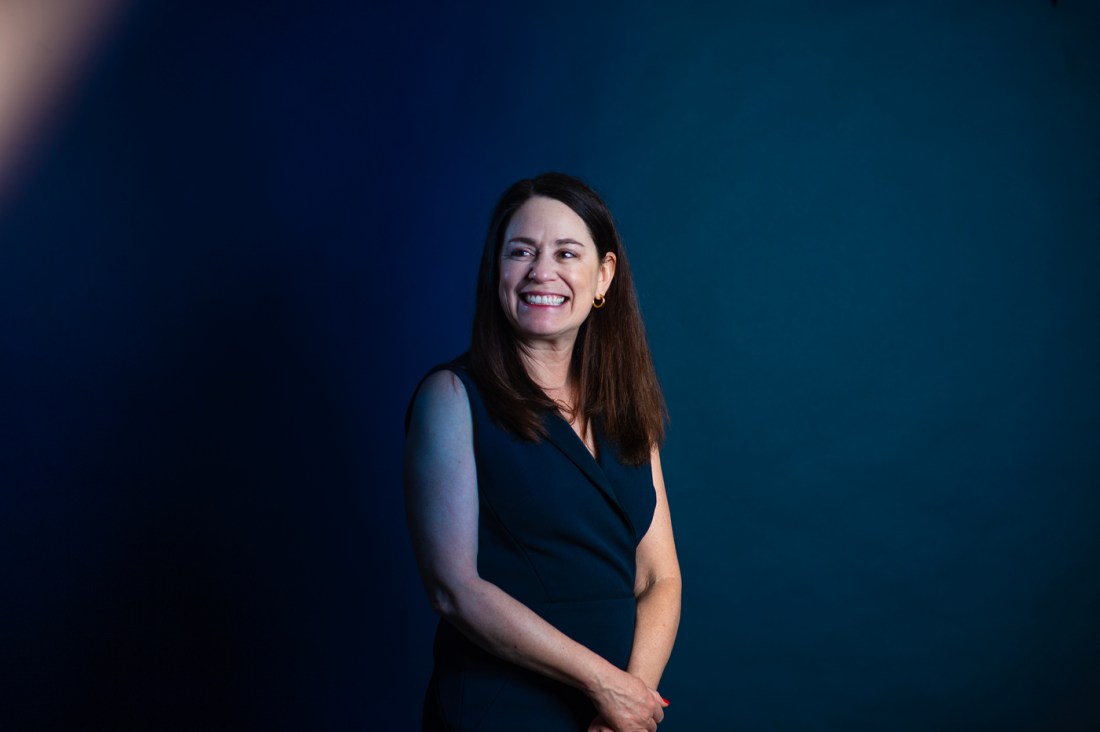Angelina Jolie as diva Maria Callas. What is a diva and how has the term changed?

Diva.
It’s a word applied to pop stars, memed to criticize temperamental behavior on TikTok, and embodies the subject of a new Angelina Jolie movie, the opera star Maria Callas.
But Northeastern University music professor Hilary Poriss says that while there will never be another Callas, the idea of the diva lives on.
“The term now is very much embedded in pop culture,” says Poriss, who has studied the history of the word “diva” and its connotations. “It’s used negatively, and it’s also used positively, and it’s reclaimed and people say ‘So what if I misbehave? This is what I have to do with my life.’”
“I think it’s still very alive, very well,” Poriss continues.

The movie “Maria” imagines the last week of opera star Maria Callas’s life — the star died of a heart attack at age 53 in September 1977 — finding the soprano isolated in her Paris apartment and reminiscing on her operatic and personal triumphs and tribulations.
Of these, there were many.
Callas, often referred to as “La Divinia,” was famous for her musicality and versatility. She gained renown for performances of a variety of demanding roles in the opera seria repertoire as well as in bel canto operas, which she helped revive and bring to new audiences.
She also was very publicly fired from the Metropolitan Opera in New York in 1958, the same year police were called when she walked off stage during an opening night performance in Rome. Meanwhile, her personal life was constant fodder for the press, especially her turbulent relationship with Aristotle Onassis … and its denouement when he married Jackie Kennedy.
And although Poriss says some of the stories were most certainly embellished, Callas also made no excuses for her high standards.
“She epitomized the idea of what a ‘diva’ is,” Poriss says. “First of all, she was an extraordinary singer and performer and could do things on stage that were just transformative. And at the same time, off stage, there were all these rumors of her behavior.”
“I honestly can’t think of anybody like Callas whose quote-un quote misbehaviours were really about her artistry and how she felt she was being treated,” Poriss continues. “And the power she had to just walk off stage and say, ‘Forget this. I’m out. This audience isn’t good’ — I don’t see that anywhere else.”
But Poriss notes that the idea of a “diva” has changed with time.
The term, which means “female goddess” in Italian, was not attached to female singers until the 19th century, Poriss says.
“The word diva as first applied was a compliment through and through,” Poriss says. “But gradually throughout the 19th century it started to gain the negative connotations that we place on the term. Now if we call somebody a diva, and some even a prima donna, it’s something that is not nice.”
To show how much the connotation has changed, the word was first used in French to praise singer Giulia Grisi in her depiction of the role of Bellini’s Norma in the mid-1840s — the same role Callas was playing when she famously walked off stage.
Poriss attributes the change to several factors.
Editor’s Picks
First, singers use their body as their instrument and illness is a major hazard. Poriss notes a violinist can get by with a cough that would certainly sideline a singer, but audiences — and opera house managers — have expectations that can transcend these considerations.
“There’s lots of policing of prima donnas throughout the 18th and 19th centuries,” Poriss says. “Opera houses were hiring their own doctors to make sure that when a prima donna or anybody else in the cast claims that they’re sick, that they’re really sick.”
And to be sure, there is also some history of singers being, well, what we would consider “divas.”
Poriss cites the late-19th century star Adelina Patti — who would not show up for rehearsals because she was “too good”; wouldn’t go on stage until paid in cash; and famously tinkered with the music — “transposing it, adding ornaments that were a little above and beyond what the composer would expect,” Poriss says.
Yet, Patti was world renowned.
“So, the kind of term diva gets associated with people like Patti and others, and the idea of the diva is something that becomes fascinating and compelling in a way,” Poriss says. “Not everybody’s allowed to act like this. You have to actually achieve a certain stature to be able to engage in diva behavior, for better or for worse — sometimes warranted, and sometimes just because you can.”
And while opera has perhaps lost its wider cultural prominence, and its leading stars now are also known for their music advocacy and making amends in addition to their voices, that’s not to say another diva isn’t in our midst.
Just ask Beyonce, whose 2008 song was titled “Diva.”
“I’m a a diva (hey),” she sings.










